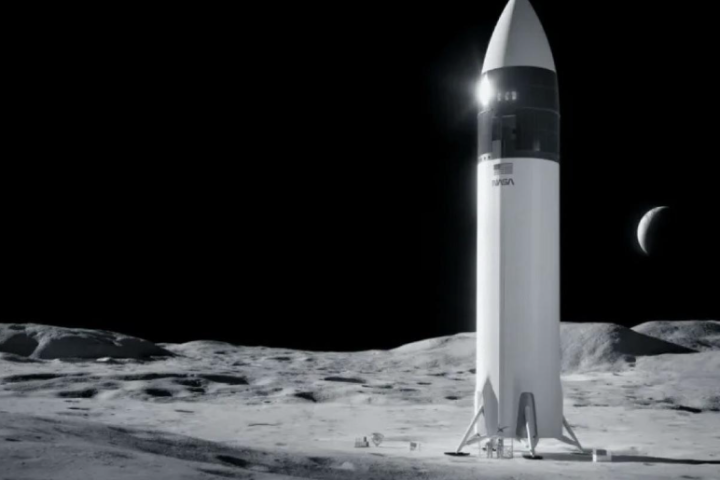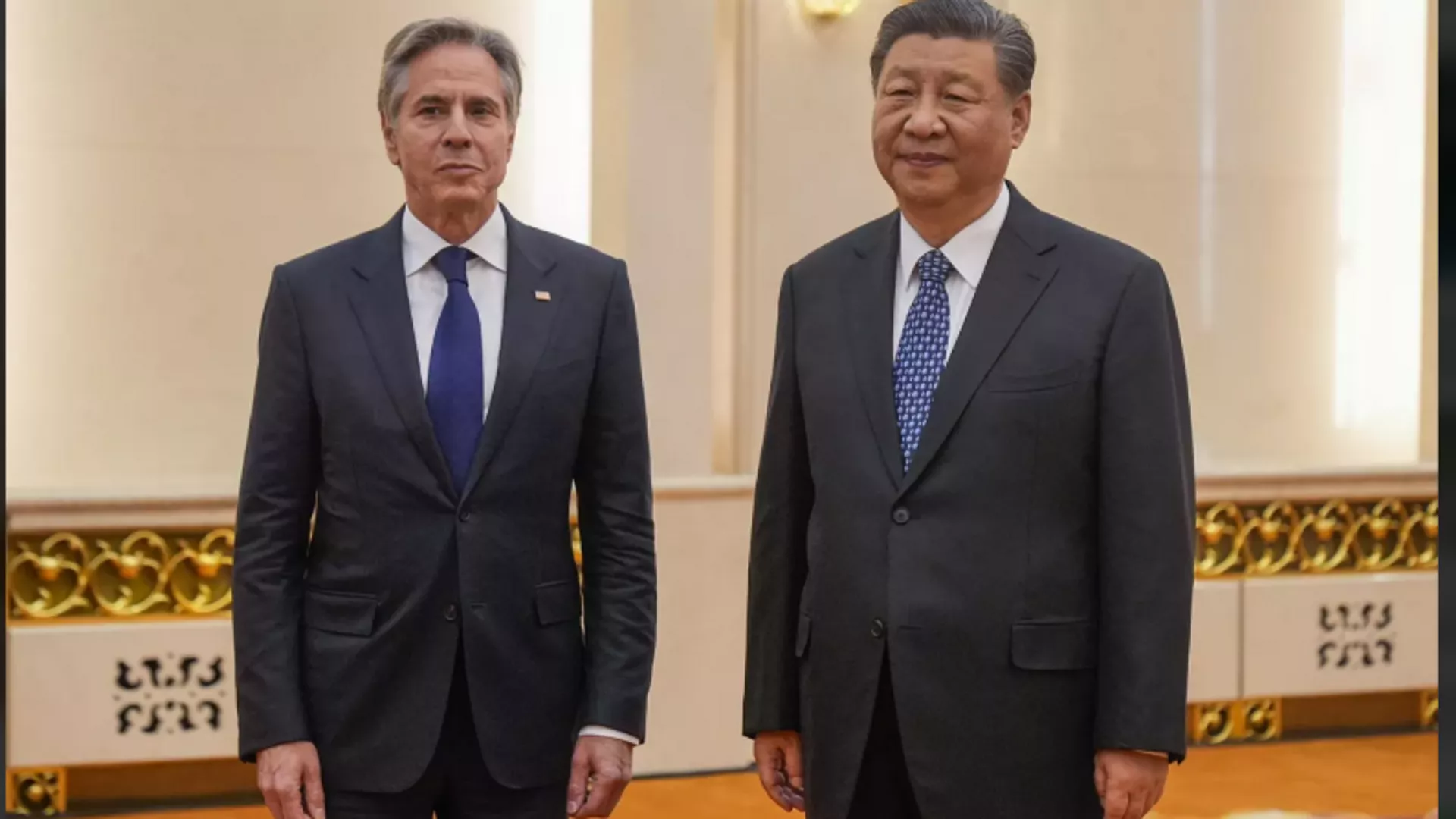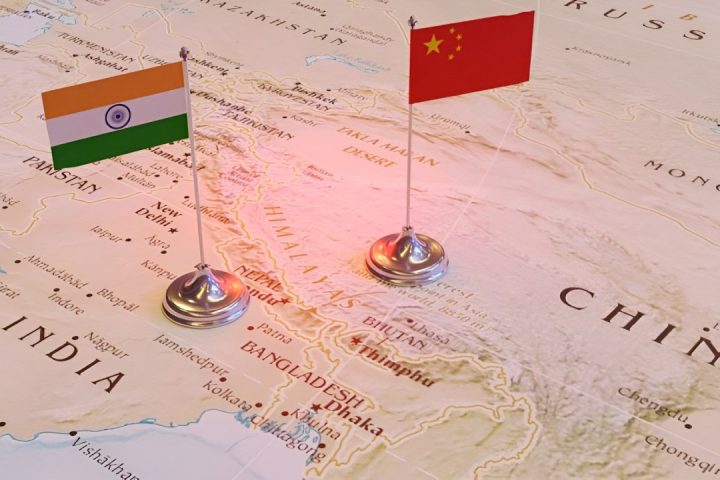China has reacted angrily to U.S. House Speaker Nancy Pelosi’s likely decision to visit Taiwan on her August trip to Asia. A spokesman for the Foreign Ministry has warned that Beijing would “act aggressively to definitely respond” and “take countermeasures” if Pelosi visited the island.
Zhao Lijian, a spokesman for the foreign ministry, said at a news conference on Monday that China’s warnings on the probable visit of the House speaker were “much harsher” than they had been in the past when it has expressed displeasure with U.S. policies toward Taiwan.
Speaking of Pelosi’s probable trip to Taiwan, he added, “the Chinese side has repeatedly made clear to the U.S. side our significant concern and our unequivocal opposition to the visit.” “We have everything we need to handle any situation. The Chinese side would take robust and forceful actions to protect our sovereignty and territorial integrity if the U.S. side persists on going. Any significant consequences that result from this must be wholly the responsibility of the United States.”
- Ronaldo makes a crucial trip back to England, according to the media
- The economy needs 500,000 migrants a year to tackle the shortage of skilled workers
- The Oldest Known Predator Fossil Found in England
Joanne Ou, the spokesman for Taiwan’s foreign ministry, said in remarks to several news sites on Monday that while Taiwan traditionally welcomes visits from American MPs, the government has not yet received any “certain information” concerning a trip by Pelosi.
Relationship in tension
The relationship between the United States and China has long been strained over Taiwan. The island democracy is considered to be a part of Chinese territory. Although the United States technically acknowledges Taiwan and China as being a part of the same nation under its “one China” policy, it maintains “strategic ambiguity” in its interactions with both.
The U.S. only maintains official diplomatic ties with mainland China, but it also maintains informal ties with the Taipei administration, which it provides with military equipment.
President Joe Biden has indicated on many times since entering office that the United States would protect Taiwan militarily if China sought to recapture the island by force, appearing to depart from U.S. policy not to make a firm statement about how it would react to Chinese aggression.
Concerns over Beijing’s intentions have been raised by China’s much more aggressive intrusions into Taiwan’s airspace and waterways in recent years.
Background of conflict
Although Pelosi’s prominence on a national and international scale is largely due to her role as the leader of the Democratic Party in the House of Representatives, the San Francisco district that has elected her to Congress every two years since 1986 has a population that is almost one-third Asian American.
Pelosi has long been an opponent of China’s social policy. It’s crucial for us to express support for Taiwan, she stated last week when asked about her impending trip to Asia. No one of us has ever declared support for Taiwan’s independence. Taiwan is in charge of deciding that.
Pelosi has been under fire from China’s Foreign Ministry for her criticism of the nation’s treatment of minorities, including the Muslim Uyghurs of Xinjiang, and has been accused of “smearing” Beijing.
timing crucial
Pelosi’s travel to Asia takes place at a delicate political moment for the Chinese government. Just months before the National Party Congress, prominent officials of the Chinese Communist Party will meet for their annual summer retreat. President Xi Jinping is anticipated to run for a historic third term at the once every five years congress.
In an email conversation with VOA, David Sacks, a research fellow at the Council on Foreign Relations, said that Pelosi’s visit’s timing probably had a significant role in how strongly China reacted.
According to Sacks, “Xi probably worries that Pelosi’s high-profile trip to Taiwan would make him appear weak in the eyes of other Party members and appear to lack a clear grasp on one of the most crucial problems for the Chinese leadership.”
“Xi would at the very least attempt to avoid dealing another blow to Taiwan and might even find a crisis beneficial as a method to divert the public or address his zero-COVID policies and strict lockdowns at home,” he continued.
In an email conversation with VOA, David Sacks, a research fellow at the Council on Foreign Relations, said that Pelosi’s visit’s timing probably had a significant role in how strongly China reacted.
According to Sacks, “Xi probably worries that Pelosi’s high-profile trip to Taiwan would make him appear weak in the eyes of other Party members and appear to lack a clear grasp on one of the most crucial problems for the Chinese leadership.”
“Xi would at the very least attempt to avoid dealing another blow to Taiwan and might even find a crisis beneficial as a method to divert the public or address his zero-COVID policies and strict lockdowns at home,” he continued.
Options are hazy
The Chinese government has expressed worries about what it would do if Pelosi visits Taiwan after raising hopes that its response would be more forceful than any in the past.
Former editor-in-chief of the state-run Global Times and political pundit Hu Xijin in China speculated that Chinese PLA planes would intercept Pelosi’s plane and “escort” it to Taiwan.
Because Chinese aircraft often fly across Taiwan’s air defense identification zone but do not transgress its territorial airspace, this would worsen already tense circumstances.
Others have their doubts about Xi’s willingness to risk an open battle.
If Pelosi really travels to Taiwan, “I don’t think that Xi Jinping will allow PLA fighter planes fly with her,” Arthur Ding, a former professor at Taiwan’s National Chengchi University, told VOA.
Major economic changes, like the rejection of the Phase 1 deal signed during the Trump administration, are more likely, in his opinion, to lead to a lowering of the tariffs that the US and China have placed on each other’s exports.
When Pelosi’s planes were accompanied by PLA fighter jets, Ding remarked, “I suppose China may (react) in this way, rather than suddenly escalating the situation. That would amount to blatant provocation by China to the United States.
Biden circumspect
Although the Biden administration lacks the ability to order Pelosi to cancel her trip to Taiwan, it appears that the administration has been attempting to discourage her from going. The military, according to Biden, “thinks it’s not a smart idea right now,” he told reporters last week.
According to Pelosi, the president said that perhaps the military was concerned about my jet being shot down or anything similar.
John Kirby, a spokesman for the National Security Council, said that the NSC had informed Pelosi of the security situation. However, administration officials have made it plain that Pelosi should make the decision, not the president.
Pelosi advised leaving
Pelosi has been pushed by a large number of current and past members of the U.S. administration to visit Taiwan despite Beijing’s opposition.
During a recent visit in Taipei, former defense secretary Mark Esper stated, “I don’t think we should allow China to dictate the travel plans of American leaders.” He also asked the United States to reevaluate its “One China” policy, claiming that the position was no longer necessary.
Mike Pompeo, a former secretary of state, tweeted on Sunday offering to attend with her “I’ll go with you, Nancy. China has blacklisted me, but Taiwan, which values freedom, has not. Hello there!”
Crises could be unavoidable.
The idea that China may threaten Pelosi with military planes shows how tense the alliances between China, the United States, and Taiwan are.
Three significant “Taiwan Strait Crises,” so termed for the body of water dividing the island from the mainland, have occurred. The first two, which took place in the 1950s, included fighting over tiny islands that Taiwan claimed but were really near to the Chinese mainland. The third incident occurred between 1995 and 1996 and featured China launching missiles into the waters near Taiwan.
According to Sacks of the Council on Foreign Relations, tensions over Taiwan’s status appear to be reaching a breaking point.
“We would be in a full-blown Taiwan Strait crisis, which would be significantly more hazardous than prior crises given the political circumstances in Washington and Beijing,” he added. “If China were to try to block Pelosi’s plane from landing.”
Even if we manage to complete the journey without incident, he said, “I feel a Taiwan Strait crisis is imminent.”





